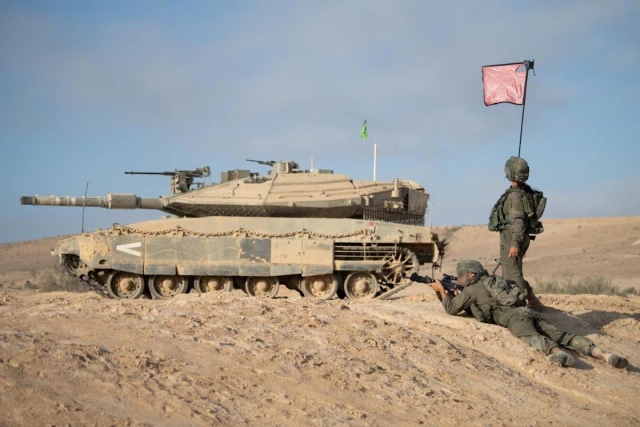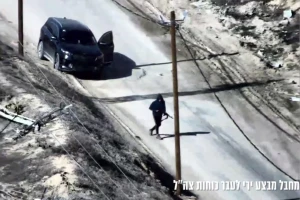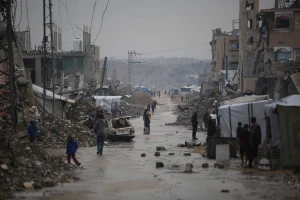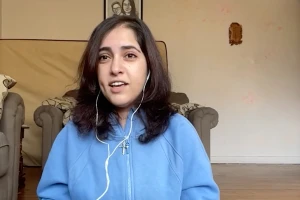Israel prepares for renewed conflict as 3 ceasefires appear to show signs of strain
Hamas and Hezbollah continue to violate ceasefire terms, while Iran is rebuilding its ballistic missile program

Although Israel technically has three concurrent ceasefires with enemies it has fought over the past two years, recent developments have raised concerns that these agreements may not hold much longer.
The ceasefire with Hamas, the most recent of the three, appears to be under the greatest strain. Armed militants have been crossing the Yellow Line – which separates the Hamas-controlled and Israel-controlled parts of the Gaza Strip – on an almost daily basis. Israel has responded firmly to these violations, signaling its intent to prevent the terror group from rebuilding its capabilities.
Over the weekend, Israel eliminated approximately 20 Hamas terrorists and terror commanders, including Abu Abdallah al-Hadidi, in widespread strikes across the Strip.
The move prompted a response from the Hamas terror group, which warned that the ceasefire is at risk of collapsing and accused Israel of violating its terms.
At the same time, the Israeli military has continued to strike Hezbollah targets in Lebanon in response to the Shia terror group’s efforts to re-establish itself in the south, including a rocket launch site in the Bekaa Valley on Saturday, and the elimination of two senior terrorists on Sunday.
Israeli attacks have also targeted areas north of the Litani River, especially the Bekaa Valley.
צה״ל תקף משגרים ואתרים צבאיים של ארגון הטרור חיזבאללה במרחב הבקעא ובדרום לבנון
— צבא ההגנה לישראל (@idfonline) November 22, 2025
צה״ל תקף לפני זמן קצר, בהובלת פיקוד הצפון ובאמצעות חיל האוויר, מספר משגרים של ארגון הטרור חיזבאללה אשר זוהו לאחרונה ומוקמו באתרים צבאיים בדרום לבנון.
בתקיפה נוספת במרחב הבקעא, צה״ל תקף בהובלת חיל… pic.twitter.com/51TXWAB1Ol
These strikes reveal Israel's frustration over the failure of the Lebanese government to enforce the ceasefire terms and with the Lebanese army’s inability to disarm Hezbollah.
Meanwhile, Israel is hoping that the new U.S. ambassador to Lebanon, Michel Issa, will put pressure on Beirut to take a firmer stance. The nation's ongoing economic crisis and fears of internal unrest have so far prevented the Lebanese government from taking a stronger position against Hezbollah.
For its part, Hezbollah has warned that additional Israeli attacks risk escalation, and the IDF is preparing for several days of fighting if the terror group responds militarily.
However, the front that is causing the most concern for Israel's leadership is Iran. According to a report in Asharq Al-Awsat, Iran is preparing for a larger confrontation with Israel than the 12-day war in June.
Brigadier-General Ali Mohammad Naini, spokesman for the Iranian Revolutionary Guard Corps (IRGC), downplayed the possibility of renewed hostilities between the two sides in an interview with the regime-affiliated Mehr news agency, saying that “the enemy is not ready for a new war.”
“The enemy is nowhere near having the capacity for war anytime soon,” Naini added.
“The enemy’s strategy is to construct a narrative of victory from the previous war and to produce fear of a new war,” he continued.
In the interview, Naini said Iran was prepared for the conflict, asserting that since February 2024, the regime had considered war “inevitable.” He also said Iranian forces quickly re-established the command structure.
“Immediately after the enemy’s surprise attack, which resulted in the killing of several of our commanders at operational bases and headquarters, the command cycle was swiftly restored, and our forces were fully mobilized to respond in less than an hour,” Naini asserted.
The IRGC spokesman said that Iran has “no concerns about threats,” and warned, “If the enemy commits another act of folly, it will face a far more decisive and regret‑inducing response. We are prepared even for a more complex war.”
Israel launched surprise strikes on Iran’s top military leaders, nuclear scientists, uranium enrichment sites, and ballistic missile program, saying the action was necessary to prevent the regime from attaining nuclear weapons in order to destroy the Jewish state.
Iran retaliated by launching over 500 ballistic missiles and almost 1,100 drones at Israel, which resulted in the killing of 32 people and the wounding of over 3,000.
The surprise attack by Israel, coupled with the Israel Air Force’s unrestrained freedom of operation and the activities of Mossad and other intelligence units inside Iran, further weakened Tehran’s regional standing. This blow came on the heels of the dramatic assassination of Hezbollah leaders and the destruction of key Iran-supplied infrastructure during IDF operations in Lebanon.
That weakening of Hezbollah, along with repeated strikes against key Iranian and Syrian army positions, enabled the toppling of the Bashar al-Assad regime by Hay’at Tahrir al-Sham (HTS) forces led by Abu Mohammed al-Julani (Mohamed al-Sharaa), further weakening Iran’s “Ring of Fire” proxy strategy.
However, with Iran still grappling with the economic consequences of international sanctions, a severe water shortage, and ongoing political unrest, some analysts warn the regime may feel compelled to take action that diverts attention from its domestic shortcomings.
Recent Israeli intelligence assessments indicate that Iran has been actively working to rebuild ballistic missile sites damaged during the 12-day war. Despite crippling Israeli strikes, the Iranian regime apparently believes it achieved significant success with several of its ballistic missile attacks and has threatened to launch even larger volleys in a future conflict. Analysts fear that in such a tense climate, either country could launch a pre-emptive strike, believing the other is about to strike.

The All Israel News Staff is a team of journalists in Israel.
You might also like to read this:











